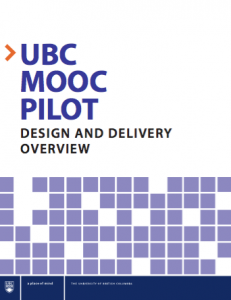Recently, my colleagues Cindy, Rie, and myself undertook an exercise to map the frameworks and principles of Open Learning Design, which is at the intersection of our separate portfolios on Learning Resource Design and Open Education Initiatives. Since one of the principles in this area is that education is a political act, we’ve thought it would be fun to draft a manifesto for Open Learning Design. We hope to refine it, so, as always, comment and critique are welcome.
Sharing is the foundation of the University.
Sharing is not a functionality within the University; rather the University is the functionality of sharing within its community.
Embedded within the vision and values of the University is that it “supports scholarly pursuits that contribute to knowledge and understanding within and across disciplines, and seeks every opportunity to share them broadly.” Teaching and learning is at the heart of these scholarly pursuits and, as Teachers and Learners, we must seek every opportunity to share broadly, for, as others have noted, “we share our work in education so that one day we might become free through education.”
As Teachers and Learners, we understand that open practices enhance teaching and learning.
As learners, we understand we have the greatest capacity to learn when we are free to share in the shared knowledge of the University. Free, as Wiley defined, to access, to reuse, to revise, to remix, to retain, and to redistribute that knowledge, those materials, that help us learn. We also understand that learners contribute to this shared knowledge and that we should, as Bruff describes, not merely be passive consumers of knowledge but producers, engaged in meaningful, generative work of the University.
As Teachers, we understand that knowledge does not equal understanding and that meaningful learning is authentic learning.
We understand that good teaching requires empathy and that authenticity is grounded in the expertise of the learner in their own learning. We strive to make our students be co-collaborators and co-producers of the curriculum. We work to build trust through honest collaboration for, as Neary states, the capacity for students as producers is “grounded in the human attributes of creativity and desire, so that students can recognise themselves in a world of their own design.”
As Teachers and Learners, we design for sharing and we create for understanding.
We are not wasteful. We are not afraid of failure. Understanding is developed through opportunities to iterate and practice across time and contexts, applying feedback to refine and deepen. Understanding requires self-awareness, practice, reflection and feedback. Understanding is supported by who you know and have access to through your networks, and good educational design facilitates connections.
As Teachers and Learners, we understand that we are one community. We understand that our community is not the University but rather that it is the community which forms the University. Sharing broadly is the means to remove the artificial barriers between the University and the community.
Education is the means that allows the individual, as Freire states, to “deal critically and creatively with reality and discover how to participate in the transformation of their world.” The University’s role is to share this education broadly.
